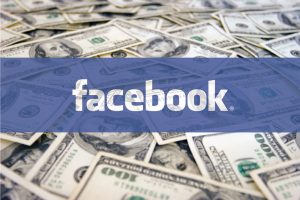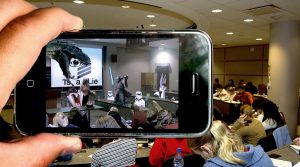
In December 2010, Facebook was valued at $56 billion as the world’s third-largest social networking app, surpassing Google to become the most visited website in America. And because it started with links between Ivy League and other groups of friends from college, its user stickiness and aggregation led to success faster than other social networks. For Mark Zuckerberg, he has created a myth that most people dream of. He built a separate social space around the people he knew and spread his influence around the world, and becoming the youngest millionaire in the world. For Lessig (2010), Mark Zuckberg’s success stems from his vision of open source and free internet platforms, but he was not the founder of a vast business empire. The Internet is less about requiring dealer approval or licensing and regulation to formalise startups than it is about creating a platform that has never been created before with creative and coding talent. Lessig thought he was simply expanding his embryonic ideas and giving them to others to develop. And in a way, Lessig’s idea, Facebook is like presenting his entrepreneurial development, the contradiction between friends, It’s even serious enough to be similar to Bo’s The Social Network, directed by David Fincher. The film is more focused on the problems of stealing ideas and privacy, but real Facebook over the years, involving the destruction of democracy and authentic public discourse, excessive commercial opacity, and narrowing the authenticity of human relationships.

“What’s wrong with this scene from the Social Network Movie?” by waynesutton12 is licensed under CC BY-NC-SA 2.0
The origin of Facebook
In 2012, Facebook bought instagram, from a start-up with only 13 members to what is now the world’s most influential graphic media social platform (Rusli, 2012). From soccer superstar Cristiano Ronaldo to screen stars such as Chris Evans, who starred in The Avenagers series, Facebook has pretty much taken over the world. And in the mouth of Mark Zuckberg (Newton, 2021), The aim of The Facebook is to build a virtual world universe that encourages people to focus on the integration of multiple social functions, and to work with other companies and developers to make the Internet a visible part of life in the future. And the origins of the virtual space and virtual world that he says was built under the name of Facebook started with a Facemash program that judges girls, It may well be a trivial move for Zuckburg, but viewers of The Social Network know it’s a dramatic opening. On the night of 2003, he hacked into Harvard’s network to find all the photos on the ID cards of the girls and put them on Facemash’s website. All the students were asked to judge who was attractive, and when the site was taken down because of privacy violations and a Harvard database rule that forbids copying of images, the website itself had 22,000 people to rate (Brodsky, 2018). Facemash also represents Silicon Valley’s dominant white, middle-class men who make unequal sexism judgments around the opposite sex and whose subjects are left to passively accept an unknown fate (Noble, 2018).
Since then, Facemash has caused viral effects, and Tyler Winklevoss and Cameron Winklevoss invites Zuckberg was asked to start a school social network called connection. And that’s where he got the inspiration for Facebook, which he founded with Eduardo Saverin, Also, for stealing inspiration and following Sean Parker’s advice to dilute Eduardo Saverin’s shares, he twice sought private counsel to mediate. While The Social Network’s choreography has a dramatic element, it basically reflects the inspiration behind Facebook and how it has been influenced by the global Internet reality.

“dinero facebook” by clasesdeperiodismo is licensed under CC BY-SA 2.0
Looking ahead to Facebook: the unregulated reality
In the decade since the launch of the social network, Facebook has gone from the original Facemash built for mischief to the media-inclined audience platform in the age of big data dominated by information flow. It dominates nearly 80% of the world’s social traffic, fueling an oligopoly in the Internet age. Facebook, which has virtually no regulatory authority to narrow its rights under any regulation, has far more clout than any government politician (Flew, Martin & Suzor, 2019). Facebook is far more cohesive than other social apps, especially when it comes to institutions that serve political purposes or organize groups to seek resistance. In 2008, Morales was long affected Revolutionary Armed Forces of Colombia Shaken by the kidnapping of children and the public’s anger, he resolved to use Facebook as a social link and to rally resistance. Nearly 4,000 people from close friends joined the group through Facebook, and it grew into a massive movement against the oppression of the FARC, against anger over the suffering and deceit of so long (Kirkpatrick, 2010). In a sense, the existence of Facebook has accelerated the emergence of global community. The information society defines the relationship network and social economy, and under the social economy the digital long-distance social development brings the original regionalized community together through the association word (Wilson, Corey & Kellerman, 2013).

“Augmented Reality” by turkletom is licensed under CC BY 2.0
It is also around the social demands generated by Facebook, where the platform ties them together based on common keywords, shared nationalities, and even potential connections (Boyd & Ellison, 2007). The revolt against the FARC is a fierce protest fuelled by a digital movement, the kind of political protest that today is driven by non-stop people. Facebook creates a grey area between national regimes, but it is equally difficult to be bound by regulations between countries. Facebook is particularly unregulated on privacy, especially when it comes to intruding on user privacy, among other things. Facebook’s underlying code allows third-party embedded programs to access user data, and in doing so, authorizes third parties to use the data to identify user addresses, profiles and photos. And the AI behind Facebook is also accessing data to deliver tailored ads to users (Englehardt, Acar & Narayanan, 2018). Meanwhile, Facebook summarized the News Feed, summarizing everyone’s photos, trends, birthdays, and these updates make it easier for people around them to know what they’re doing, The result almost led 99% of Facebook to set up a protest group called thousand people protest group, resulting in the first privacy protest, while opacity has recently emerged as the future direction of regulation in the age of big data. Facebook has also deliberately kept creators’ incomes down in the regulatory process. Its revenue and market share in the market also meet the United States to occupy more than 60% of the FTC definition, It controls more than 90 per cent of active users and a per-user share, but generates only a tiny share of the market for creators. According to statistics, Facebook generated $210 billion in the three years since 2017, but only gives creators $21 billion a year. At another level, Facebook maintains its monopoly by acquiring WhatsApp and nstagram, and enforcing anti-competitive rules against third-party software developers (Liss, 2021)
The State of Facebook: Invasion of Privacy and Dictatorship Never Changed
In February 2009, Facebook’s terms defined that even if Facebook users deleted their accounts, their data would not be deleted, but would continue to exist as part of the remnants of the social network. In his statement, Mark Zurgberg imagines Facebook as part of a democratically constructed digital empire (Le France, 2021). Facebook’s efforts to be transparent about privacy and the platform in the eyes of the public have continued since the privacy conflict of 2006, There has never been a real tangible improvement effort, even allowing people close to them free access to Facebook’s vast database (Bereznak, 2020). His nature is like the one in the movie where he doesn’t end up in California. His ambition in reality, embodied in the film’s highly dramatized foundation, lies behind Facebook’s platform monopoly and the manipulation of social media.

“private collaboration” by Sean MacEntee is licensed under CC BY 2.0
Conclusion
With the development of the Internet, data communication such as Facebook has provided a place for political development and cross-border communication. It not only created a global online community, but also promoted social and environmental change, and even through the film to explore the voice of development and rights. But this kind of explosive growth provides the opportunity for the hegemonic rule of Internet polity, which invades the privacy space excessively and also monopolizes the creation opportunity of small enterprises and creators. The free flow of information across national borders, and how to explore online cyber policies, remains a subject for sustained research.
<a rel=”license” href=”http://crativecommons.org/licenses/by-nc/4.0/”><img alt=”Creative Commons License” style=”border-width:0″ src=”https://i.creativecommons.org/l/by-nc/4.0/88×31.png” /></a><br /><span xmlns:dct=”http://purl.org/dc/terms/” property=”dct:title”>The Social Network: Exposing the Dilemmas Facing Facebook</span> by <a xmlns:cc=”http://creativecommons.org/ns#” href=”https://2021.arin2610.net.au/?p=28995&preview=true” property=”cc:attributionName” rel=”cc:attributionURL”>Jingchun Yang</a> is licensed under a <a rel=”license” href=”http://creativecommons.org/licenses/by-nc/4.0/”>Creative Commons Attribution-NonCommercial 4.0 International License</a>.>.